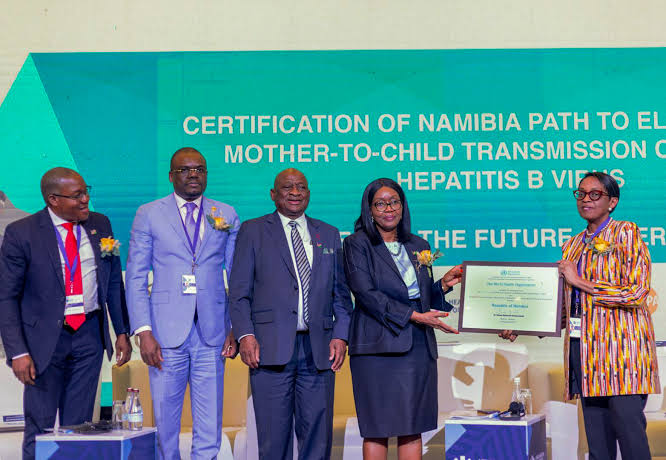Namibia has made history as the first African nation and the first high-burden country globally to achieve a significant milestone in eliminating the transmission of both HIV and viral hepatitis B from mother to child, announced the World Health Organization (WHO) on Monday.
The WHO noted that eastern and southern Africa bear over half of the world’s HIV burden, with the continent accounting for two-thirds of new hepatitis B infections worldwide. Namibia, home to more than 200,000 people living with HIV, has seen a disproportionate impact on women due to new infections.
Anne Githuku-Shongwe, UNAIDS Regional Director for East and Southern Africa, emphasized the significance of Namibia’s achievement, stating, “In many countries, we are failing our children by not reaching them with the same treatment as their mothers and other adults. Namibia has fought against this injustice, and we are proud to celebrate their immense effort to leave no child behind. They serve as a beacon for the entire region.”
The country’s progress is evident through widespread availability of HIV testing among pregnant women and improved access to treatment, resulting in a 70% reduction in vertical transmission over the past two decades. In 2022, only 4% of babies born to HIV-positive mothers contracted the virus, while nearly 80% received timely birth doses of the hepatitis B vaccine—a critical measure on the path to elimination.
Namibia’s integrated approach to primary healthcare, which includes antenatal, child health, and sexual and reproductive health services, coupled with the provision of free clinical services and support, has contributed to its success.
Recognizing Namibia’s achievements, the WHO has awarded the country “silver tier” status for progress in reducing hepatitis B transmission and “bronze tier” for progress in combating HIV transmission.
Dr. Matshidiso Moeti, WHO Regional Director for Africa, hailed Namibia’s accomplishment as a landmark achievement that underscores the life-saving potential of dedicated political leadership and effective public health interventions.
The WHO’s Triple Elimination Initiative, aimed at curbing the transmission of hepatitis B, HIV, and syphilis, seeks to protect the health of mothers and children and uphold every child’s right to be born free from the burden of these viruses.

